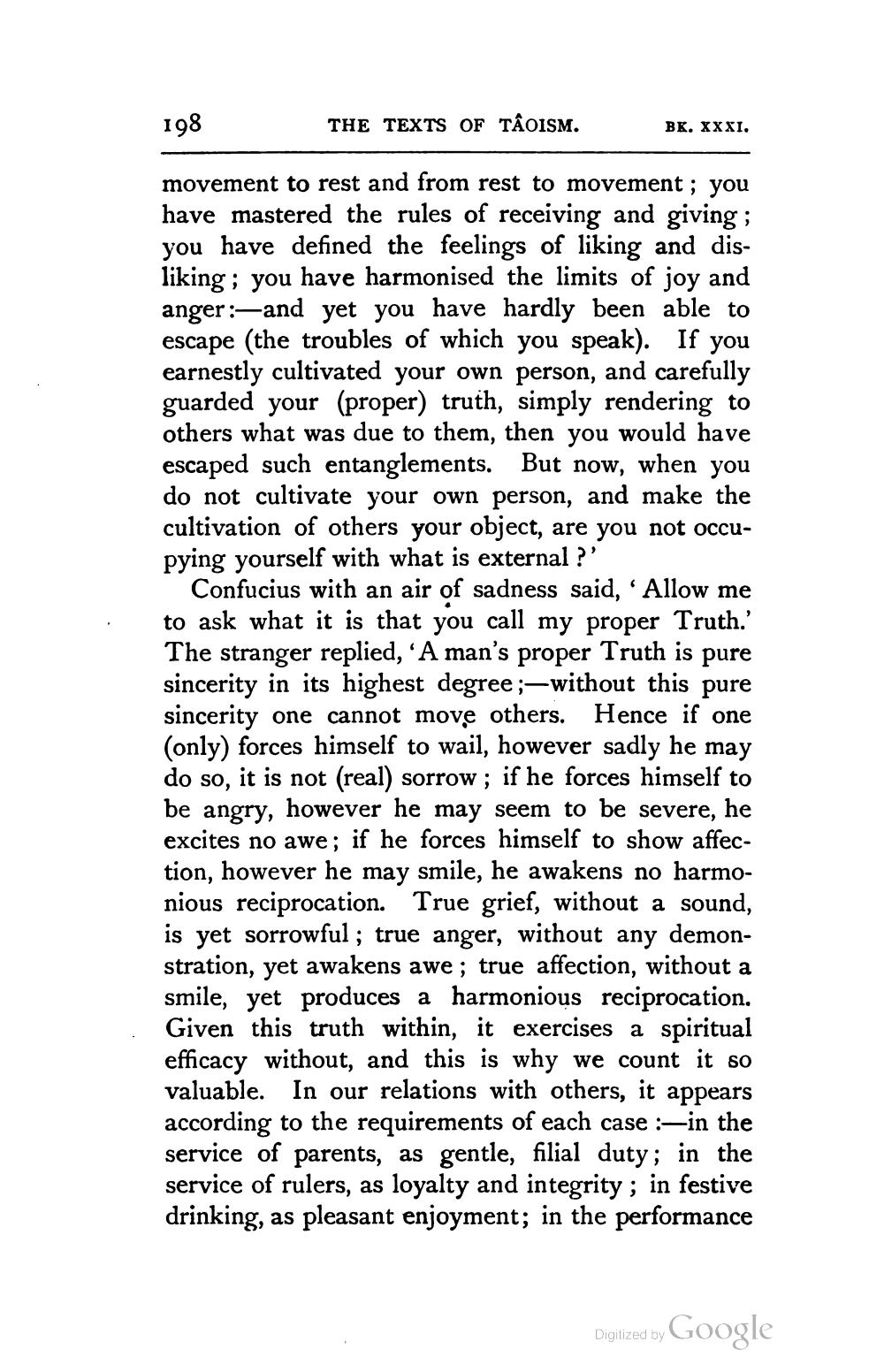________________
198
THE TEXTS OF TÂOISM.
BK. XXXI.
movement to rest and from rest to movement; you have mastered the rules of receiving and giving ; you have defined the feelings of liking and disliking ; you have harmonised the limits of joy and anger :-and yet you have hardly been able to escape (the troubles of which you speak). If you earnestly cultivated your own person, and carefully guarded your (proper) truth, simply rendering to others what was due to them, then you would have escaped such entanglements. But now, when you do not cultivate your own person, and make the cultivation of others your object, are you not occupying yourself with what is external ?'
Confucius with an air of sadness said, ' Allow me to ask what it is that you call my proper Truth.' The stranger replied, “A man's proper Truth is pure sincerity in its highest degree ;-without this pure sincerity one cannot move others. Hence if one (only) forces himself to wail, however sadly he may do so, it is not (real) sorrow; if he forces himself to be angry, however he may seem to be severe, he excites no awe; if he forces himself to show affection, however he may smile, he awakens no harmonious reciprocation. True grief, without a sound, is yet sorrowful; true anger, without any demonstration, yet awakens awe; true affection, without a smile, yet produces a harmonious reciprocation. Given this truth within, it exercises a spiritual efficacy without, and this is why we count it so valuable. In our relations with others, it appears according to the requirements of each case :-in the service of parents, as gentle, filial duty; in the service of rulers, as loyalty and integrity; in festive drinking, as pleasant enjoyment; in the performance
Digitized by Google




